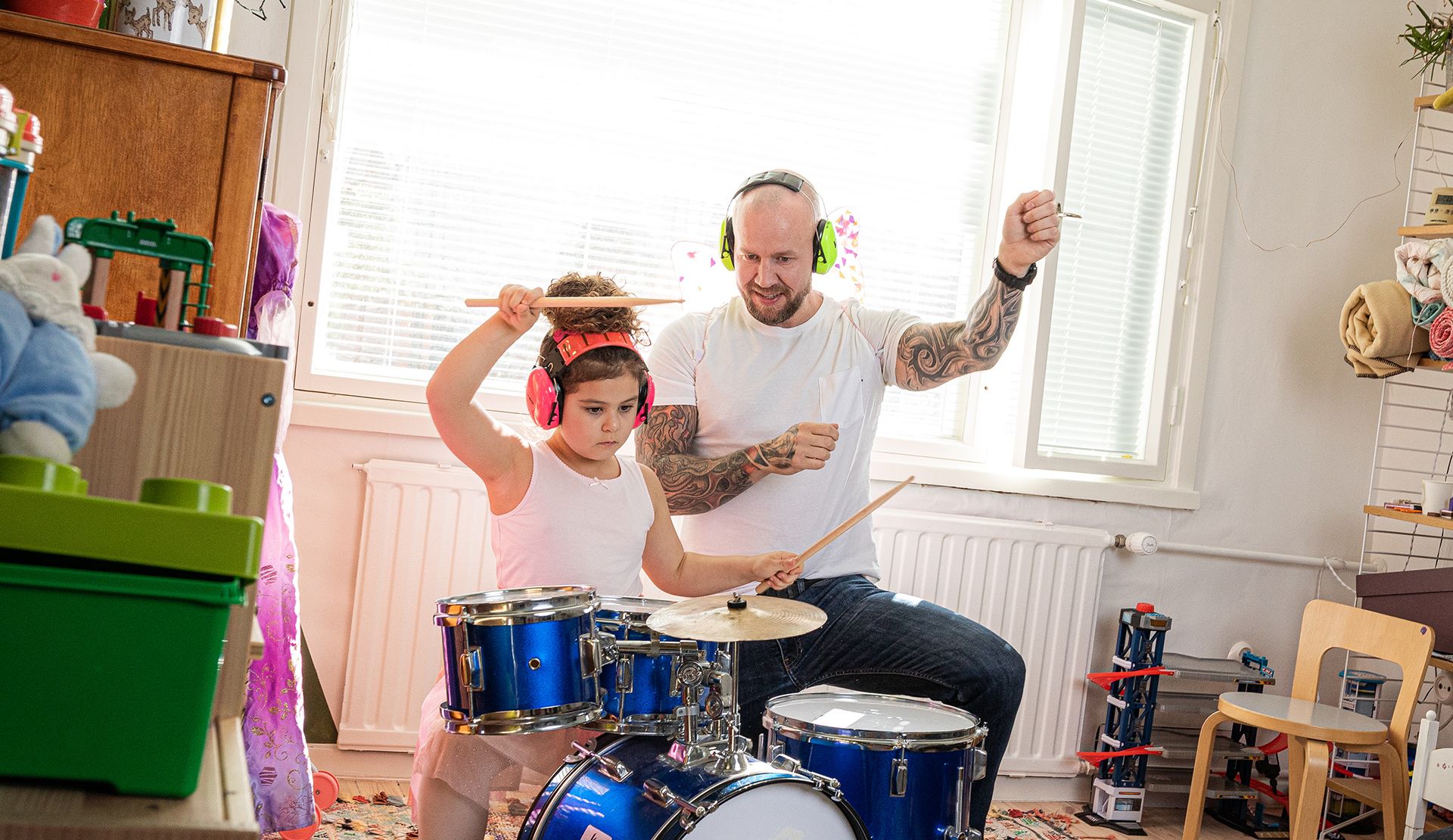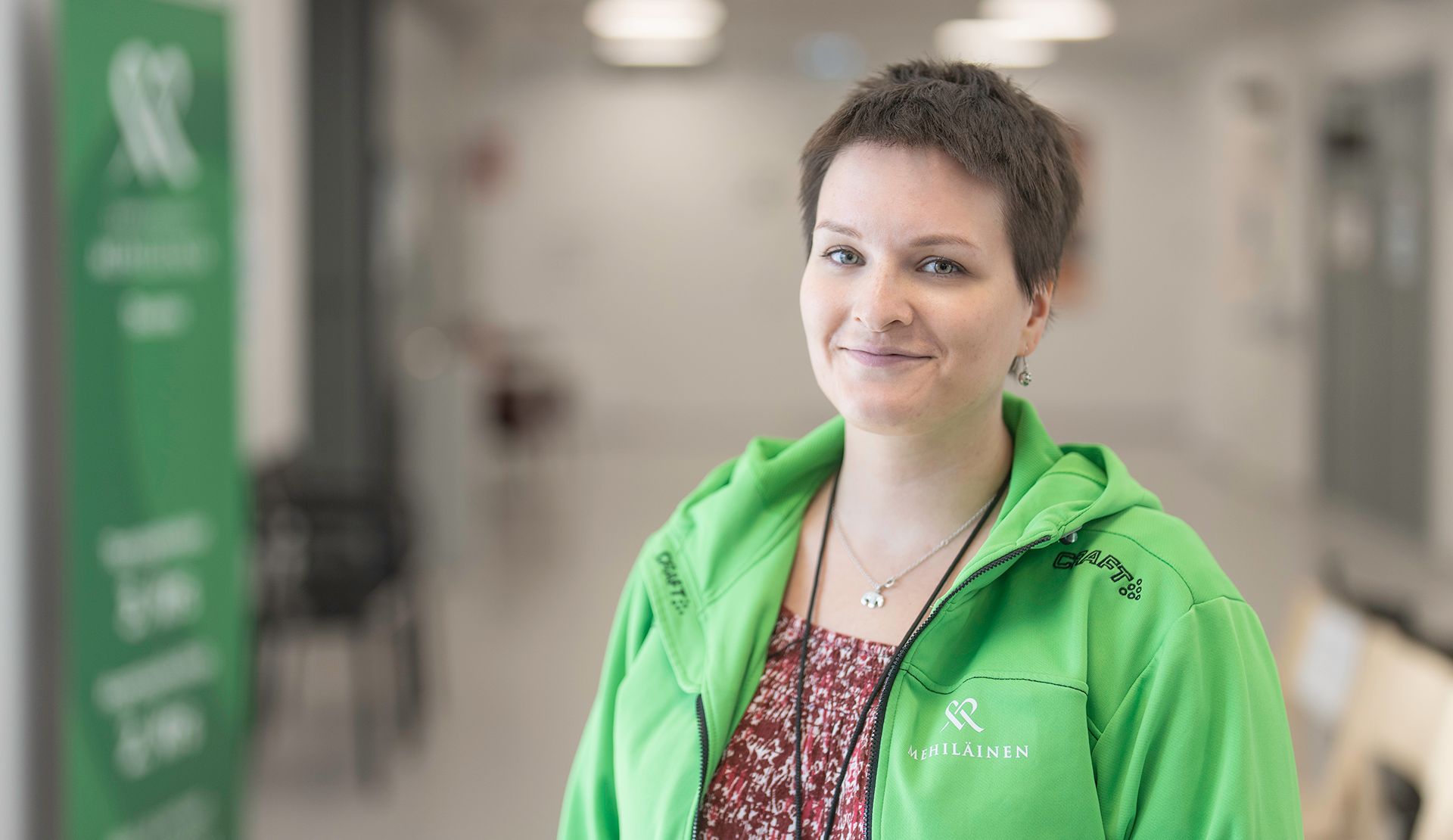
Influenza vaccine 58 €
Influenza vaccine in a nutshell
Mobile Benefit: Influenza vaccination 55 € (norm. 58 €). Learn more about Mehiläinen's Mobile Benefits
- It is advisable to get the flu vaccine in the autumn before the flu season starts.
- It takes about two weeks for antibody protection to develop, during which time the protection is not yet complete. The vaccine can also be taken after the epidemic has started.
- The price includes the vaccine and the nurse's fee. No additional clinic or Kanta fees are added to the vaccine price.
General information about the influenza vaccine
- Over the course of an ordinary influenza epidemic, about one in ten adults will get influenza.
- Getting vaccinated is the best way to protect yourself against influenza. Most people who get vaccinated will not get influenza.
- If a vaccinated person gets the influenza, the disease is usually milder and recovery is faster.
- In addition to preventing influenza complications, the influenza vaccine also prevents ear infections: the rate of ear infections over the influenza season has been up to a third lower in children who have been vaccinated against influenza.
- By getting vaccinated, you can also help prevent the spread of influenza and protect both your loved ones and those in high-risk groups.
The influenza vaccine and its benefits
Over the course of an ordinary influenza epidemic, about one in ten adults will get influenza. Getting vaccinated is the best way to protect yourself against influenza. Most people who get vaccinated will not get influenza. If a person who has received the influenza vaccine gets influenza, the illness is usually milder and does not last as long. In addition to preventing influenza complications, the influenza vaccine also prevents ear infections: the rate of ear infections over the influenza season has been up to a third lower in children who have been vaccinated against influenza. By getting vaccinated, you can also help prevent the spread of influenza and protect both your loved ones and those in high-risk groups.
Learn more:
What are the influenza high-risk groups?
When should you be vaccinated against influenza?
We recommend getting vaccinated in the autumn, before the start of the influenza season. It takes about two weeks for antibodies to develop, and the protection against the illness will not be complete during that time. You can also get vaccinated after the epidemic has already begun, but there is a risk of infection before the antibodies have fully developed. The vaccine will not be harmful in such a situation and will not lead to an illness that is more severe than usual. However, please note that you may not get vaccinated while you have a fever or have an infection that is causing a fever.
You can get a high-dose influenza vaccine even if you have never had an influenza vaccine before. The high-dose influenza vaccine is generally suitable for anyone who is able to have the standard influenza vaccine.
The influenza vaccine given as nasal spray is intended for children aged 2–17. The influenza vaccine given as nasal spray cannot be administered for children under two years of age, but they are offered an injected vaccine instead.
Influenza vaccine 2026
For the 2026 influenza season, Mehiläinen uses vaccines that are in line with WHO recommendations.
In addition, a high-dose influenza vaccine is available for people aged over 60. The high-dose vaccine contains a larger amount of active ingredient than the standard vaccine used in the national vaccination programme.
In addition to the injectable vaccines, a nasal spray influenza vaccine is available for children aged 2–17. The virus strains used in all the vaccines are in line with WHO recommendations.
You must have a new influenza vaccine every year as the influenza viruses in circulation change from year to year.
The prices of influenza vaccines in 2026
The price of the vaccine provided by Mehiläinen during the influenza season 2025–2026 is 58 €. The price includes the vaccine and the nurse's fee. No outpatient fee or Kanta fee is added to the price of the vaccine.
Mobile Benefit: Influenza vaccination 55 € (norm. 58 €). Learn more about Mehiläinen's Mobile Benefits
Influenza vaccinations for occupational health care customers
Do you know how many of your company’s employees have influenza during the year? Do you know how much influenza infections costs your company?
In people of working age, the influenza vaccine prevents 7–8 cases out of 10. Check the calculator to see what vaccination would mean for your organisation.
Corporate decision makers can contact us and agree on vaccinations with their organisation’s occupational health nurse.
Note! The Kanta fee will not be added to the price of the influenza vaccination. Possible time-bound promotional prices may differ from these.
Read more about group discounts for vaccinations
Mehiläinen’s Mobile Benefits and their use
| Service | Price |
|---|---|
| Hepatitis A (adult) | 121,50 € No Kela reimbursement |
| Hepatitis A (under 16 years old) Information about the traveler's vaccinations. | 95,70 € No Kela reimbursement |
| Hepatitis A+B vaccine (adult) | Mobile Benefit 122,00 € No Kela reimbursement 134,90 € No Kela reimbursement |
| Hepatitis A+B vaccine (under 16 years old) | Mobile Benefit 96,00 € No Kela reimbursement 112,30 € No Kela reimbursement |
| Influenza vaccine | Mobile Benefit 55,00 € No Kela reimbursement 58,00 € No Kela reimbursement |
| High-dose influenza vaccine | Mobile Benefit 96,00 € No Kela reimbursement 99,50 € No Kela reimbursement |
| Tetanus and diphtheria vaccine Information about the tetanus-diphtheria vaccine. Book an appointment for vaccination | 65,80 € No Kela reimbursement |
| Tetanus-diphtheria-pertussis (dtap) vaccine Information about the tetanus-diphtheria-pertussis vaccine. | 81,60 € No Kela reimbursement |
| COVID-19 vaccine | 144,50 € No Kela reimbursement |
| Pneumococcal vaccine More information about the pneumococcal vaccine. Book an appointment for pneumococcal vaccination | 144,30 € No Kela reimbursement |
| Tick-borne encephalitis vaccine (adults) Price per vaccination. More information about the tick-borne encephalitis vaccine. Book an appointment for tick-borne encephalitis vaccination
| Mobile Benefit 66,00 € No Kela reimbursement 80,50 € No Kela reimbursement |
| Tick-borne encephalitis vaccine (children) Price per vaccination. More information about the tick-borne encephalitis vaccine. Book an appointment for tick-borne encephalitis vaccination | Mobile Benefit 66,00 € No Kela reimbursement 77,60 € No Kela reimbursement |
Explore other vaccinations
COVID-19 vaccination
The updated vaccines offer better protection against new virus variants.
HPV vaccine
The HPV vaccine provides protection against the most common high-risk HPV viruses.
Influenza vaccine high-dose
A more effective flu vaccine designed for those over 60.
Influenza vaccine nasal spray
A painless flu vaccination designed for children over 2 years old.
Tick-borne encephalitis vaccine
Three doses provide basic protection. Prevents about 90% of tick-borne encephalitis infections.
Frequently asked questions about the influenza vaccine
The influenza vaccine used at Mehiläinen protects against both influenza A virus strains and both influenza B strains.
We recommend getting vaccinated in the autumn, before the start of the influenza season. It takes about two weeks for the immunity to develop, during which the protection against the illness will not be complete. You can also get vaccinated after the epidemic has already begun, but there is a risk of contracting influenza before the antibodies have fully developed.
You must have a new seasonal influenza vaccine every year as the influenza viruses in circulation mutate and change from year to year.
High-risk groups for influenza and everyone whose immediate circle involves a person at a risk of contracting severe influenza are recommended to get vaccinated against influenza.
High-risk groups for influenza:
- people aged over 65
- young children
- pregnant women
- anyone with a cardiovascular disease, diabetes, lung disease, liver disease or kidney disease, despite their age
- patients with a weak immune system due to an illness or treatment.
The vaccine cannot be administered if you have a high fever or an infection that is causing a fever and it must be postponed until you feel better.
The presence of the following diseases should be considered when getting vaccinated:
- Childhood asthma: if the vaccine is administered nasally, it must be postponed if the child’s asthma is poorly controlled or if the child has a respiratory tract infection that involves wheezing.
- Fever: the vaccine cannot be administered you have a high fever or an infection that is causing a fever and it must be postponed until you feel better.
- Guillain-Barré syndrome (GBS): In the event of a recent onset of GBS, you should discuss with your attending doctor about getting vaccinated against influenza.
Nasally administered vaccines cannot be given to:
- people with severely weakened immune system due to a disease or its treatment or
- children undergoing salicylate treatment.
The vaccine cannot be administered if you have had a severe, immediate allergic reaction, i.e. anaphylaxis, to an influenza vaccine.
_2.jpg)
